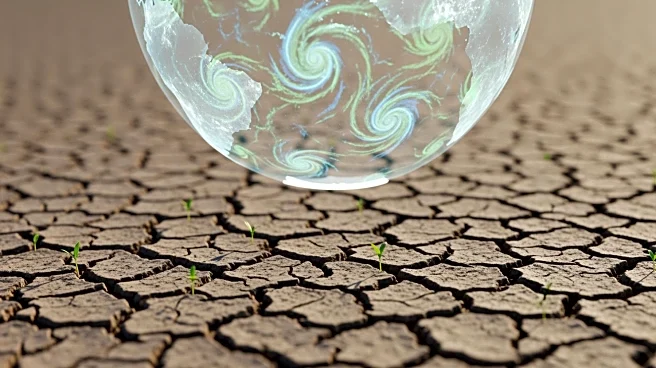Rapid Read • 9 min read
The United Nations High Commissioner for Refugees (UNHCR) is a subsidiary organ of the UN General Assembly, established in 1950 to provide international protection to refugees and find durable solutions to their problems. Headquartered in Geneva, the agency operates in 137 countries with a staff of over 18,000, primarily based in the field. The current High Commissioner, Filippo Grandi, has been in office since January 2016. UNHCR's mandate includes supervising international conventions for refugee protection and coordinating relief efforts globally. The agency's role has evolved from providing financial support to private organizations to becoming an operational entity directly involved in refugee assistance. UNHCR's activities are guided by its Statute, the 1951 Refugee Convention, and various UN General Assembly resolutions, which have expanded its mandate to include internally displaced persons (IDPs) in certain contexts.
AD
UNHCR plays a critical role in addressing the global refugee crisis, which affects millions of people worldwide. By coordinating international efforts and providing protection, the agency helps ensure that refugees can seek asylum and find safe refuge. Its work is essential for maintaining international peace and security, as refugee crises often arise from conflicts and can lead to regional instability. UNHCR's efforts to integrate refugees into host communities and support their voluntary repatriation or resettlement contribute to long-term solutions. The agency's involvement in the Global Compact on Refugees and its collaboration with other international organizations highlight its importance in shaping global refugee policies and responses.
UNHCR will continue to lead international efforts in refugee protection and seek to strengthen its partnerships with states and other stakeholders. The agency is expected to focus on implementing the Global Compact on Refugees, which aims to improve international cooperation and responsibility-sharing. Upcoming meetings, such as the Global Refugee Forum, will provide opportunities for UNHCR to present its findings and discuss strategies with policymakers. The agency will also work on enhancing its emergency response capabilities and addressing the needs of internally displaced persons in conflict situations.
UNHCR's work raises important ethical and legal questions about the rights of refugees and the responsibilities of states. The agency's efforts to protect refugees often involve navigating complex political landscapes and negotiating with governments to ensure compliance with international law. Additionally, UNHCR's reliance on voluntary contributions from states and other donors highlights the challenges of securing adequate funding for its operations. The agency's focus on integrating refugees into national systems and promoting their self-reliance reflects a broader shift towards sustainable development and long-term solutions.
AD
More Stories You Might Enjoy











